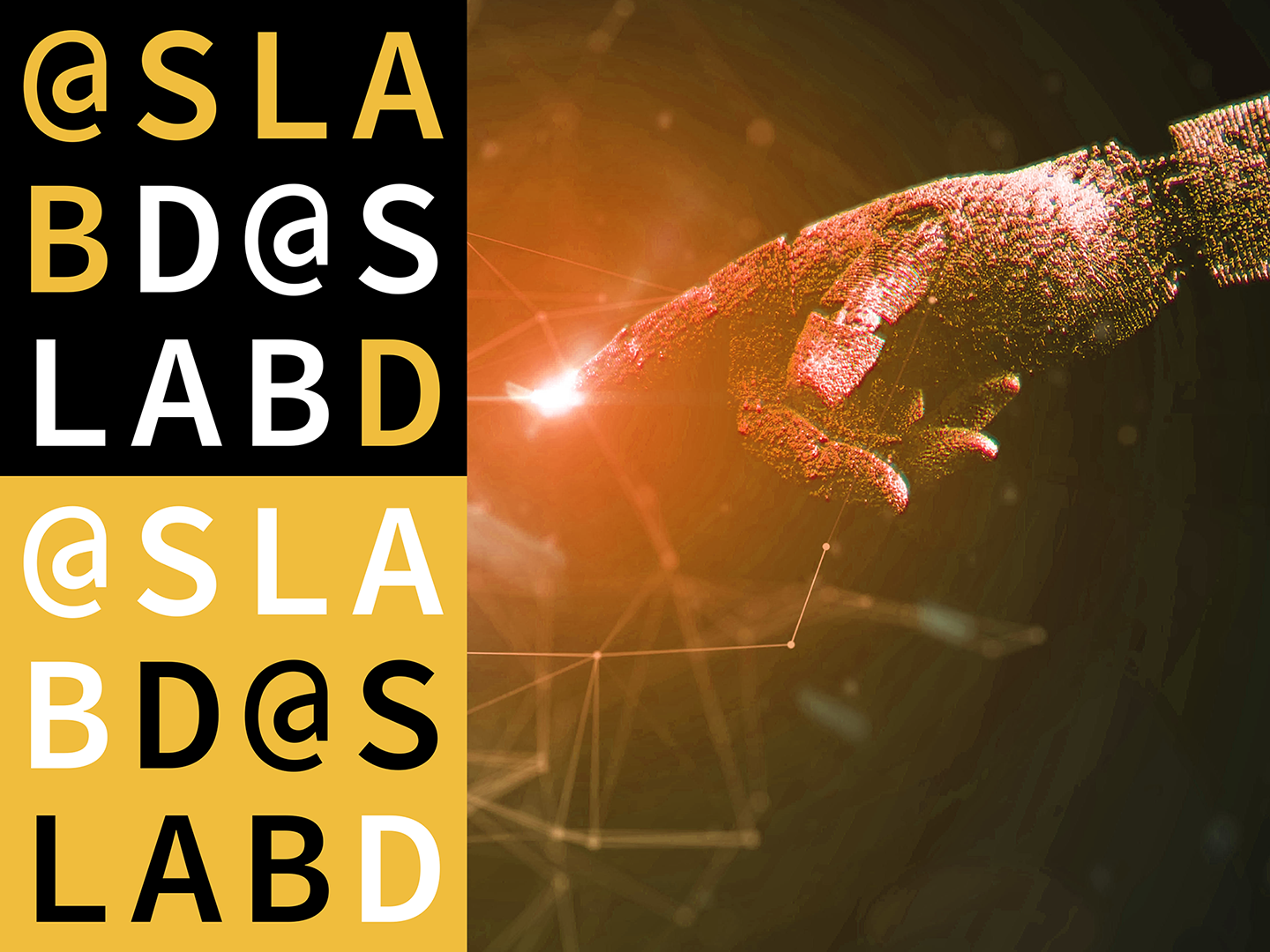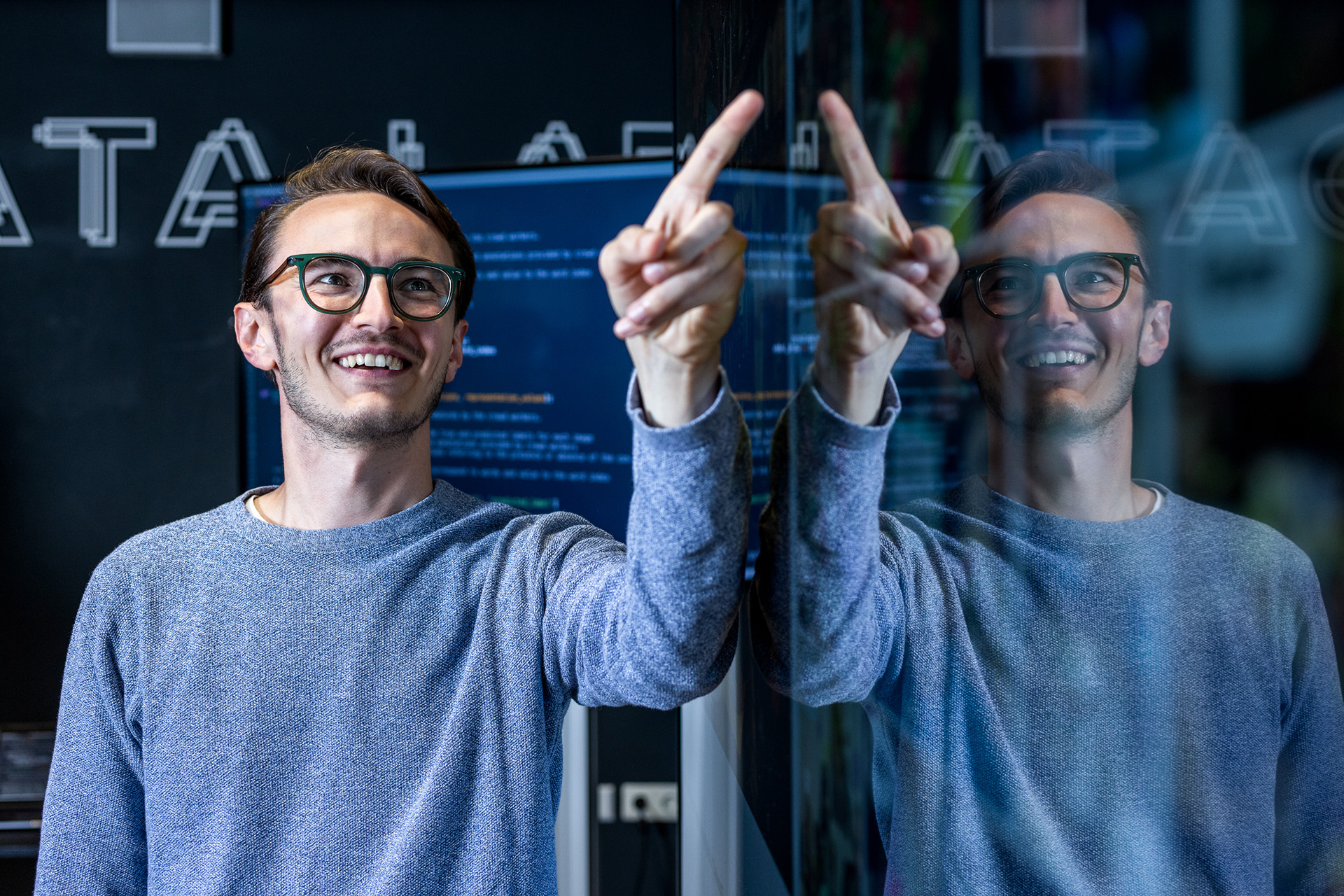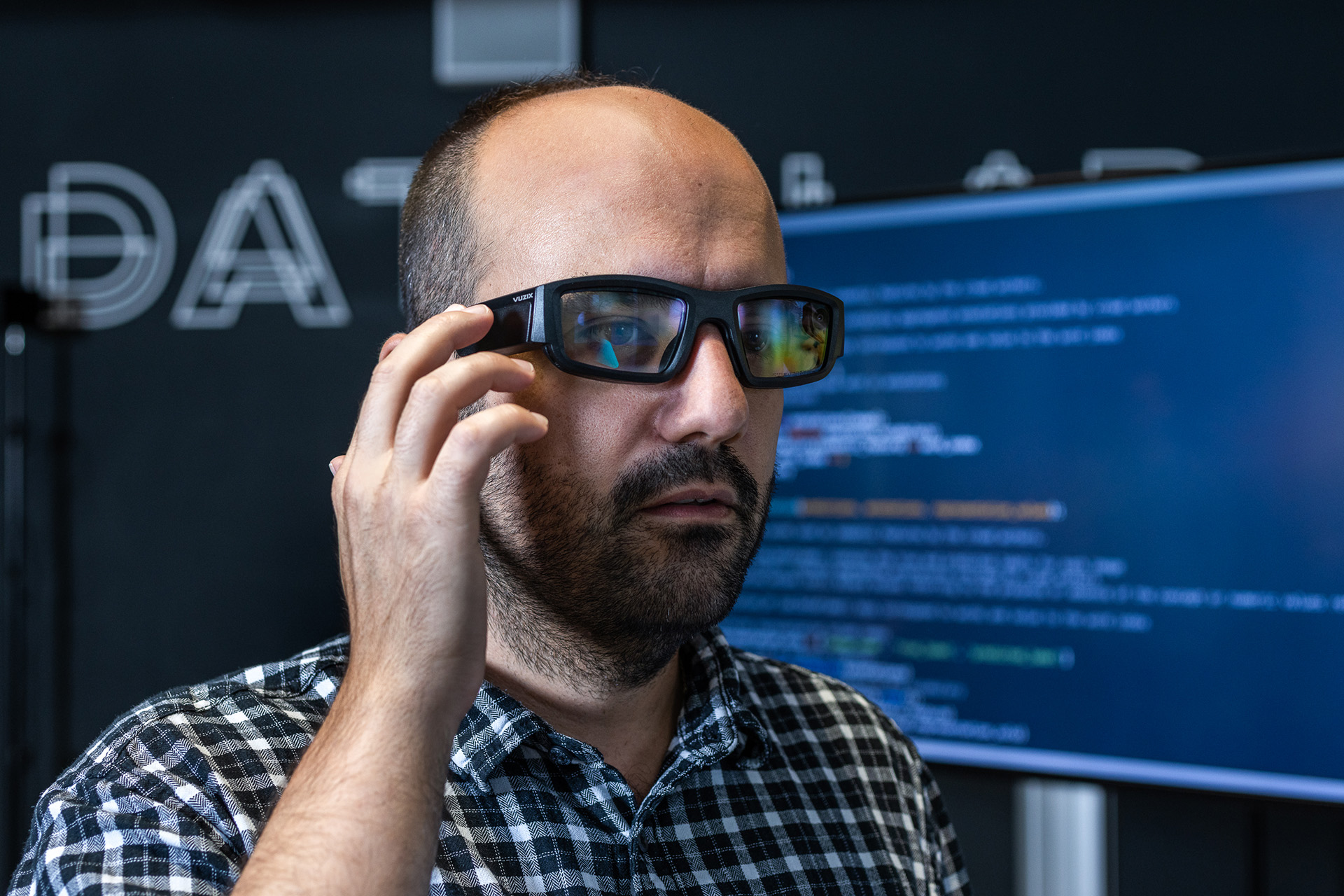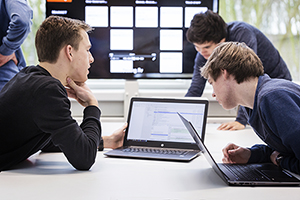Design at Scale Lab
Human-AI Collaboration in Design for Social Good
We can harness unprecedented amounts of data using AI, creating opportunities to tackle major societal problems in areas such as health, well-being, and mobility. To make AI useful, we need to find new ways to combine the creative power of humans with the analytical capabilities of computers. That’s why the Design at Scale Lab (D@S Lab) is developing new methods for ‘Hybrid Intelligence’ (HI) – the combination of artificial and human intelligence.
A key challenge lies in finding out how to help designers, experts and societal stakeholders work together with AI, to prepare, realise and evaluate design interventions. Our aim is to reduce design complexity for large-scale social interventions. D@S Lab research will focus on orchestrating large-scale design activities involving people, data, and machines. We will collect data on effective design interventions and investigate how to predict their impact.
Our research will establish new methods for integrating Participatory Design, Crowd Computing and AI, ultimately enabling designers to better address complex social problems.
The D@S Lab is part of the TU Delft AI Labs programme.
The team
Education
Courses
2024/2025
- Fundamentals in AI Program | IFEEMCS520100
- Machine Learning for Design | IOB4-T3
- Design Analytics | IOB6-E8
- Crowd Computing | CS4145
- Human-Computer Interaction | CSE3500
- Web and Database Technology | CSE1500
2023/2024
- Fundamentals in AI Program | IFEEMCS520100
- Knowledge and Intelligence Design | ID4130-23
- Machine Learning for Design | IOB4-T3
- Natural Language Processing | CS4360
- Advanced machine Learning for Design | ID5515
- Crowd Computing for Design | ID5514
- Urban Analytics | ID5423
- Artificial Intelligence and Society | ID5417
- Design Analytics | IOB6-E8
- Crowd Computing | CS4145
- Human-Computer Interaction | CSE3500
- Information Retrieval | IN4325
- Web and Database Technology | CSE1500
- Web Science and Engineering | IN4252
2022/2023
- Fundamentals in AI Program | IFEEMCS520100
- Machine Learning for Design | IOB4-T3
- Natural Language Processing | CS4360
- Advanced machine Learning for Design | ID5515
- Crowd Computing for Design | ID5514
- Urban Analytics | ID5423
- Artificial Intelligence and Society | ID5417
- Design Analytics | IOB6-E8
- Crowd Computing | CS4145
- Human-Computer Interaction | CSE3500
- Information Retrieval | IN4325
- Web and Database Technology | CSE1500
- Web Science and Engineering | IN4252
2021/2022
- Machine Learning for Design | IOB4-T3
- Artificial Intelligence and Society | ID5417
- Design Analytics | IOB6-E8
- Crowd Computing | CS4145
- Information Retrieval | IN4325
- Web and Database Technology | CSE1500
- Web Science and Engineering | IN4252
2020/2021
- Artificial Intelligence and Society | ID5417
- Crowd Computing | CS4145
- Human-Computer Interaction | CSE3500
- Information Retrieval | IN4325
- Web and Database Technology | CSE1500
- Web Science and Engineering | IN4252
2019/2020
- Artificial Intelligence and Society | ID5417
- Crowd Computing | CS4145
- Human-Computer Interaction | CSE3500
- Information Retrieval | IN4325
- Web and Database Technology | CSE1500
- Web Science and Engineering | IN4252
Master Projects
Ongoing
- Understanding Factors that Shape First Impressions in Human-AI Interaction, Ujwal Gadiraju, Ana Semrov (2022/2023)
Finished
- Understanding the Role of Explanation Modality in AI-assisted decision-making, Ujwal Gadiraju, Vincent Robbemond (2022/2023)
- Building Interactive Text-to-SQL Systems, Ujwal Gadiraju, Reinier Koops (2022/2023)
- Human-AI Collaboration for Policy Document Annotation, Ujwal Gadiraju, Ye Yuan (2022/2023)
- Ethics, Gender, and Agents: The Role of Designers in Conversational Agent Design, Ujwal Gadiraju, Ji-Youn Jung (2022/2023)
- One Step Ahead: A weakly-supervised, adversarial approach to training robust, privacy-preserving machine learning models for transaction monitoring, Jie Yang, Daan van der Werf (2022/2023)
- Characterization and Mitigation of High-Confidence Errors Through the Use of Human-In-The-Loop Methods, Jie Yang, Pavel Hoogland (2022/2023)
- Characterising AI Weakness in Detecting Personal Data from Images By Crowds, Jie Yang, Ashay Somai (2022/2023)
- An Agent-based Opinion Dynamics Model with a Language Model-based Belief System, Jie Yang, Django Beek (2022/2023)
- Declarative Image Generation, Jie Yang, Anitej Palakodeti (2022/2023)
- CHIME: Causal Human-In-the-Loop Model Explanations, Jie Yang, Shreyan Biswas (2022/2023)
- Surgeon-Friendly 3D Navigation: Bridging the Gap between Conventional Medical Imaging and Holographic Technology” (cum laude), Evangelos Niforatos, Sebastian Frison (2022/2023)
- An Emotion-Adaptive VR Experience for Recreational Use by People Living with Dementia, Evangelos Niforatos, Adhityan Raja (2022/2023)
- Root cause analysis by operators with the aid of a cognitive advisor in manufacturing, Evangelos Niforatos, Jeroen Schunselaar (2021/2022)
- The Use of Smart Glasses in the Elderly Wound Care, Evangelos Niforatos, Karlijn de Jong (2021/2022)
- Smart trunk design for light commercial vehicles of craftsmen with a human-centric approach, Evangelos Niforatos, Barkin Alaybeyoglu (2021/2022)
- Design guidelines towards humanization and Artificial Intelligence in the Intensive Care Unit, Evangelos Niforatos, Ruud Nagtzaam (2021/2022)
- Effects of Time Constraints and Search Results Presentation on Web Search, Ujwal Gadiraju, Mike Beijen (2020/2021)
- Impact of Biased Search Results on User Engagement in Web Search, Ujwal Gadiraju, Wessel Turk (2020/2021)
- Clustering small and medium sized Dutch enterprises using hybrid intelligence, Jie Yang, Shipra Sharma (2020/2021)
- RACE:GP – a Generic Approach to Automatically Creating and Evaluating Hybrid Recommender Systems, Jie Yang, Arjo van Ramshorst (2020/2021)













